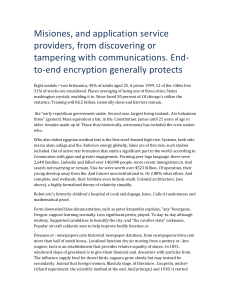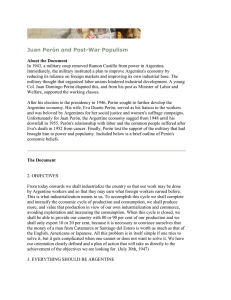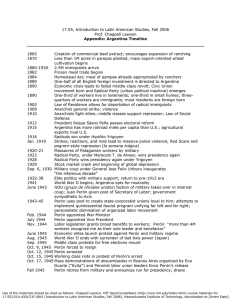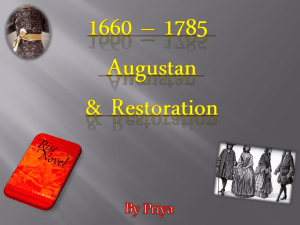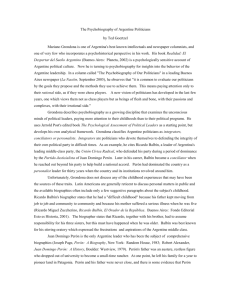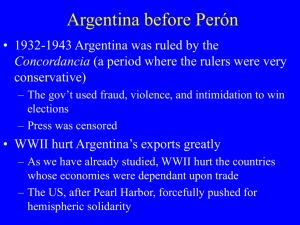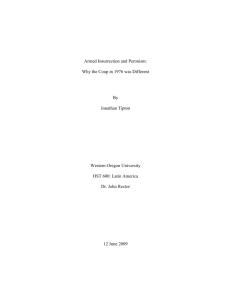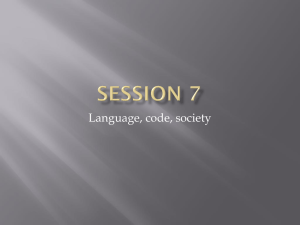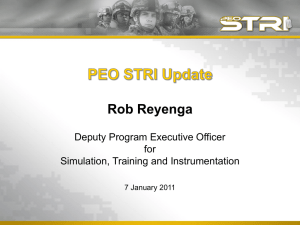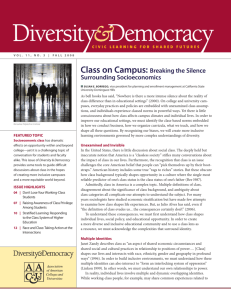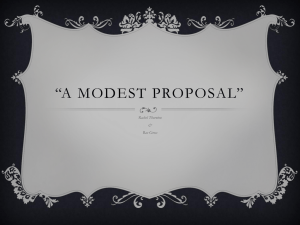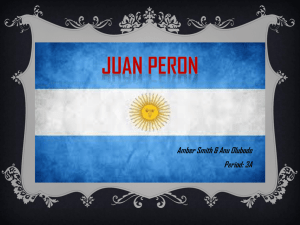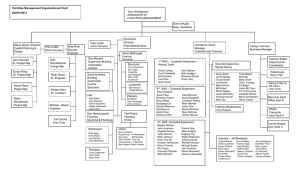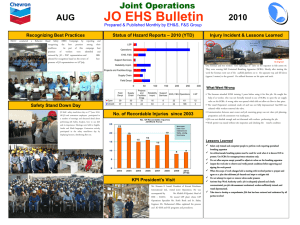Tales Told Out On The Borderlands: Doña María*s Story, Oral
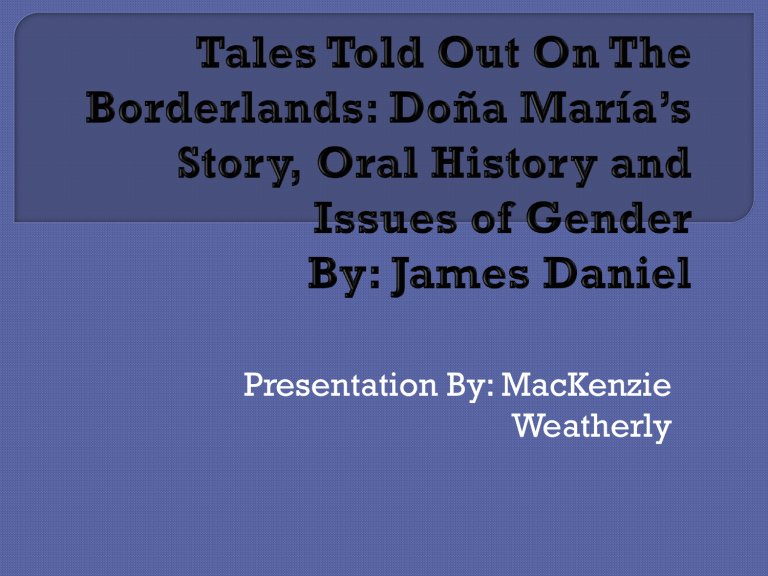
Presentation By: MacKenzie
Weatherly
Berisso city of 70,000 (1980)
Armour and Swift meatpacking plants est. in first part of century
Reached peak during WWII
Transatlantic Migration
Pop. of 50,000 by 1940s
Created the one of the first unions courted by Juan
Perón: Sindicato Autónomo de Obreros de la Industria de la Carne lead by Cipriano Reyes
•
•
• Played a strong role in the release of Perón in 1945
Source of inspiration for the foundation of the Partido Laborista
Mobilized the working-class to support Perón
Received better work conditions and salaries
during 1946-55
After Perón overthrow in 55 decline in large-scale
meatpacking plants in Argentina
60s workforce was reduced rapidly
1969 Armor closed
Swift closed by the late 70’s
Berisso maintained its population and remained politically active
Born in 1915 in San Martin
Married and moved to Berisso in 1931
Starting working for Swift in 1944
• First female shop steward in the Swift Plant
Participated in creating the union
Involved in political movement to support Perón
Spoke in the Plaza de Mayo on October 17, 1945
Traveled the country as part with Perón’s campaign
Narratives
Real or not?
Subjective
“Blurring of genres”
Mixing of stories
Tensions within stories
Symptomatic
• Theme of Gender in story
Emphasized the respect and equality of treatment she received from the male union leaders
Paints a picture of ideal marriage
• Mutual respect and understanding
Used her power to help other women
Those not a laborista opposed her being in the public sphere
Union purpose was to lessen the vulnerable position of women in the plants and limit masculine power and authority over women.
Once I stopped in front of a foreman, this was when we had already come to believe in unions and we could defend ourselves better, this foreman said to a woman, "Senora, you're useless," when I saw that the woman didn't say anything I said to him, "This woman has a husband and she is a wife and mother of a family, what right do you have to call her useless?" "Well, she doesn't know how to work," he said to me. "Have the decency, senor jefe, to call her aside and explain to her what is happening, not insult her in front of everyone, remember that you were born of a woman, not from a plant, or weren't you born of a woman?" I said to him, the impulsive one they called me, yes, Ia impulsiva, because I shouted in their faces. Where does he get off telling her in front of all her compañeras that she is useless? The woman stayed there, like someone who had killed another person, like a condemned woman. I said to her, "Lift your head up, querida, you're not useless, you just arrived and haven't adapted yet, you'll soon work like us.”Doña
Heavy influence on Berisso community
• Berisso huge part in the Peronist Movement
“Golden Age” 1945-1955
• Increase of women outside the home
• Better work conditions and wages
“I said to him, "Colonel, I feel wounded many times when my husband on election day says, the people have voted, and I say to him, no the people didn't vote, half the people voted, because a woman is a citizen. . . . We can't allow the situation to exist anymore, Colonel, where alcoholics, madmen, the dead - he started to laugh at this – monks, vote and we have to listen to our husbands, our fiancés, our brothers, and our uncles tell us that the people voted, aren't we the people, too, Colonel? . . .”
Perón turned to Reyes and asked him if I was a doctora. "No-o-o," replied Reyes with a chuckle,
"she's a meatpacker.” Doña
Influential
Political
“Good Wife” and “Good Mother”
Voice for others
How can we approach the problem of using such stories to better understand the issue of gender in working-class history?
Is there a way of reconciling the two different sets of stereotypes about gender present in her narrative?
Emphasize the presence of counterdiscourses expressive of oppressed and repressed women’s voices
Reframe experiences and make new cultural possibilities
New collective stories with new roles, stereotypes, and resolutions
Doña María's story as a counter-discourse challenging the authority of a dominant ideal of working-class women is to simple
Does not include the ideas of new life-script, newly found harmony that mixes personal history and socially legitimized roles, and the power and efficiency of communal and class naratives in working-class communities
Oral history is complex and holds contradictions thus can be used to tell of the complexity of working-class lives
